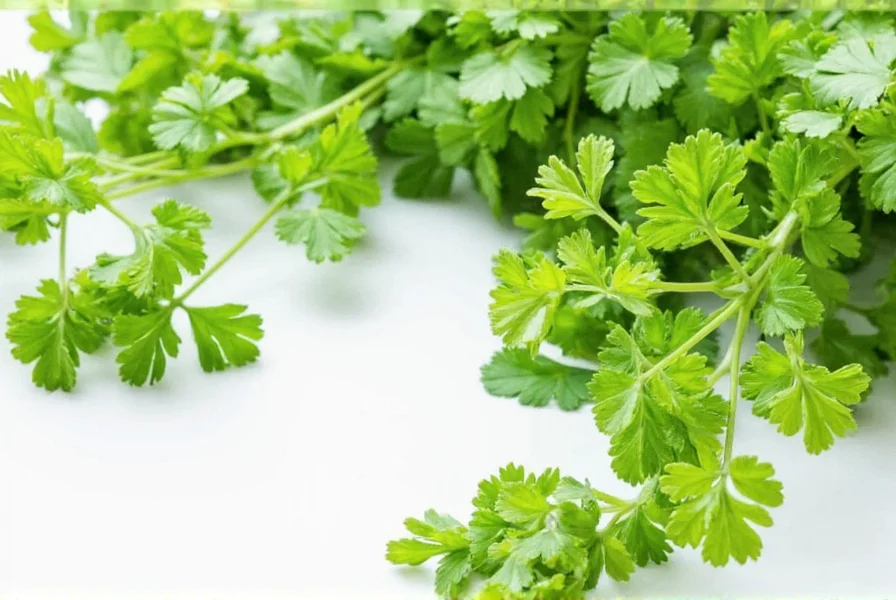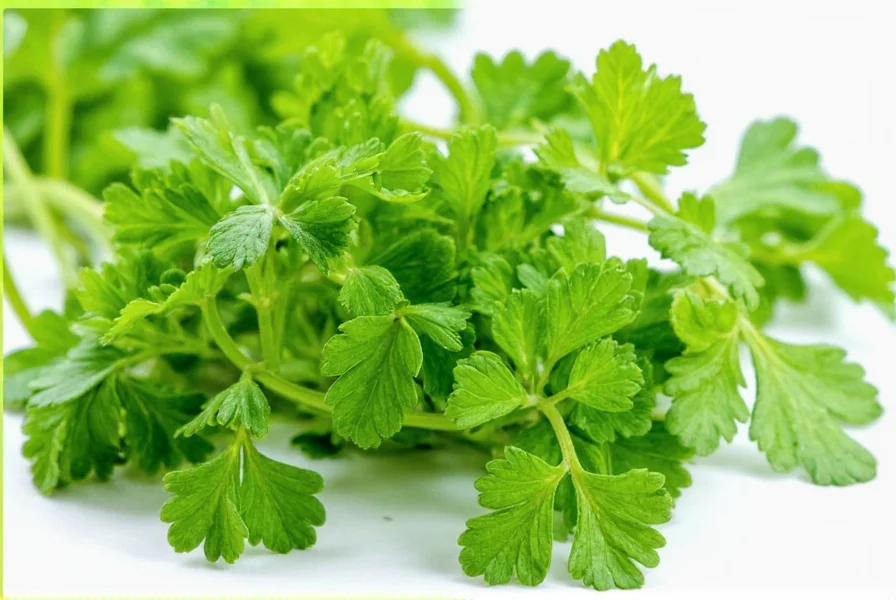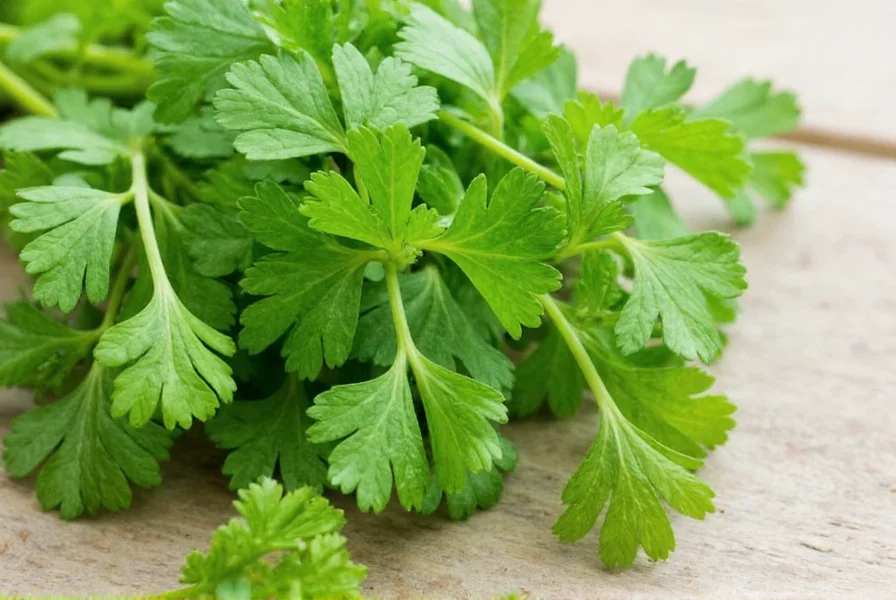Organic coriander is the dried seeds of the Coriandrum sativum plant, grown without synthetic pesticides, fertilizers, or GMOs. It has a warm, citrusy flavor and is commonly used as a spice in cooking. In this guide, we'll cover everything you need to know about organic coriander, from its definition and benefits to practical uses and buying tips.
- What Exactly Is Organic Coriander?
- Why Choose Organic? The Real Difference
- How to Use Organic Coriander Like a Pro
- 5 Essential Organic Coriander Cooking Tips
- Organic Coriander Buying Guide: What to Look For
- Frequently Asked Questions About Organic Coriander
- Conclusion: Enhance Your Cooking With Organic Coriander
What Exactly Is Organic Coriander?
Coriander comes from the seeds of the Coriandrum sativum plant — the same one that produces cilantro leaves. While many confuse coriander with cilantro, they are different parts of the same plant used in distinct ways.

Organic coriander specifically refers to seeds grown without synthetic fertilizers, pesticides, or genetically modified organisms (GMOs). These seeds retain more natural flavor and aroma while being better for both your body and the planet.
Coriander vs Cilantro: A Clear Comparison
| Part | Flavor Profile | Use Case |
|---|---|---|
| Coriander Seeds | Citrusy, nutty, warm | Dry rubs, curries, soups |
| Cilantro Leaves | Fresh, herbal, soapy (for some) | Salsas, garnishes, sauces |
Why Choose Organic? The Real Difference
Why pay extra for organic coriander when non-organic versions are cheaper? Here's why it matters:
- No Pesticides: Organic coriander is free from harmful chemical residues that may linger on conventionally farmed spices.
- Better Flavor: Organic coriander typically has a cleaner, brighter taste compared to conventional versions.
- Eco-Friendly: Organic farming supports biodiversity and healthier soil ecosystems.
- Potentially Higher Nutrient Content: Studies suggest organically grown plants may have higher antioxidant levels.
How to Use Organic Coriander Like a Pro
Organic coriander is a versatile flavor enhancer. Here's how to maximize its potential:
To Toast or Not to Toast?
Toast whole organic coriander seeds in a dry skillet over medium heat for 1–2 minutes until fragrant. This unlocks deeper, nuttier flavors and enhances aromatic oils.
Grind It Fresh
Like most spices, coriander loses potency once ground. Grind it fresh using a mortar and pestle or a spice grinder right before cooking for maximum flavor impact.
Pair It Right
Organic coriander pairs well with cumin, turmeric, cinnamon, and cardamom. Try combining them in curry blends, chili powders, or homemade garam masala.
From Breakfast to Dessert
While commonly associated with savory dishes, coriander can surprise you in sweet applications too. Add a pinch to baked goods like spiced muffins or chai-spiced cookies for a warm undertone.
5 Essential Organic Coriander Cooking Tips
- Make Your Own Curry Powder: Mix toasted and ground coriander with turmeric, cumin, ginger, mustard seeds, and paprika for a custom blend.
- Spice Up Roasted Vegetables: Toss root vegetables with olive oil and a sprinkle of ground coriander before roasting.
- Enhance Marinades: Use crushed coriander seeds in marinades for meats, especially lamb and chicken.
- Add to Soups and Stews: Whole coriander seeds are great for simmering into broths and slow-cooked dishes.
- DIY Pickling Spice: Combine coriander seeds with mustard seeds, peppercorns, and dill seeds for a homemade pickling mix.
Organic Coriander Buying Guide: What to Look For
Choosing the right organic coriander can be overwhelming. Consider these factors:
Whole vs Ground
- Whole Seeds: Ideal for toasting, grinding, or simmering into dishes. Longer shelf life and easier to store.
- Ground Coriander: More convenient but less potent. Best used in spice blends or baked goods.
Brand Comparison
| Brand | Form | Key Features | Best For |
|---|---|---|---|
| Mrs. Dash Organic | Ground | Non-GMO, gluten-free, no additives | Quick seasoning blends |
| Frontier Co-op | Whole Seeds | USDA Organic, Fair Trade certified | Homemade spice mixes |
| Simply Organic | Both | Carbon-neutral packaging, ethically sourced | Versatile cooking |
| Spice Islands | Ground | Affordable, widely available | Everyday cooking |
| The Spice Garden | Whole Seeds | Small-batch, sustainably harvested | Chef-quality recipes |
Label Reading Tips
- Look for "USDA Organic" or "EU Organic" certification.
- Check for expiration dates — fresh coriander should smell fragrant, not dusty.
- Avoid products with fillers, preservatives, or anti-caking agents.
Storage Tips
- Keep whole seeds in an airtight container away from heat and light.
- Ground coriander should be stored similarly but used within 6 months for best flavor.
- Freeze ground coriander in small portions for longer preservation.
Frequently Asked Questions About Organic Coriander
What makes organic coriander different from conventional varieties?
Organic coriander offers a cleaner, more vibrant flavor profile without chemical residues that can dull natural citrusy, nutty notes. The absence of synthetic pesticides allows the seed's true aromatic compounds to shine through, giving your dishes a more authentic and complex flavor foundation that's particularly noticeable in delicate recipes where spice flavors take center stage.
How does organic coriander differ from cilantro, and why does understanding this matter for cooking?
While both come from the Coriandrum sativum plant, coriander refers to the dried seeds (used as a spice) while cilantro refers to the fresh leaves. The seeds contain different essential oils than the leaves, resulting in completely distinct flavor profiles. Understanding this distinction is crucial for culinary precision — using the wrong part can dramatically alter your dish. The seeds offer warm, citrusy notes perfect for simmered dishes, while the leaves provide fresh, herbal accents ideal for finishing touches.
What's the best way to store organic coriander for maximum flavor retention?
The key is understanding that coriander's volatile oils begin degrading immediately after grinding. Whole seeds stored in an airtight container away from light and heat can maintain peak flavor for up to 2 years, while ground coriander starts losing potency within weeks. For best results, toast and grind seeds immediately before use. Freezing whole seeds in small portions extends their shelf life dramatically — a technique many professional kitchens use for year-round peak flavor.
What does organic coriander taste like, and how can I use this knowledge in cooking?
Organic coriander has a complex flavor profile: warm and earthy with distinct citrus notes (particularly lemon), subtle sweetness, and a gentle floral undertone. The organic variety typically offers brighter, more pronounced citrus notes compared to conventionally grown versions. To leverage this, pair it with ingredients that complement these elements — lemon zest enhances its citrus notes, while honey balances its subtle sweetness. In savory dishes, it bridges the gap between earthy and bright flavors, making it invaluable for creating well-rounded taste experiences.
Can I grow my own organic coriander, and what are the key tips for harvesting?
Absolutely! The secret to maximizing flavor when growing your own is timing your harvest correctly. For seed production, wait until the plant's leaves begin to yellow and the seed heads turn brown — this is when the essential oils concentrate most intensely in the seeds. Harvest in the morning after the dew has dried for optimal oil content. For continuous harvest, plant seeds every 2-3 weeks throughout the growing season. The soil composition significantly impacts flavor — slightly alkaline, well-drained soil produces seeds with more pronounced citrus notes.
What are the most unexpected culinary applications for organic coriander that home cooks often overlook?
1) In fruit preserves: A pinch enhances strawberry or peach jams by balancing sweetness with citrus notes
2) In baking: It adds complexity to shortbread cookies, spice cakes, and even chocolate desserts
3) In cocktail creation: Muddled with citrus in craft cocktails for a sophisticated herbal note
These applications leverage coriander's ability to bridge sweet and savory elements — a technique used by innovative chefs but rarely explored in home cooking.
How does toasting organic coriander unlock its flavor potential, and what's the perfect technique?
Toast whole organic coriander seeds in a dry skillet over medium-low heat for 1-2 minutes until they release a nutty, citrusy aroma. The key: remove them from the heat just as the aroma becomes pronounced, as residual heat will continue the toasting process. Over-toasting creates bitterness. For maximum flavor extraction, let the toasted seeds cool completely before grinding — this preserves volatile oils that would otherwise evaporate. Some chefs even toast the seeds with a few drops of neutral oil to better distribute heat and enhance oil solubility in recipes.

Conclusion: Enhance Your Cooking With Organic Coriander
Whether you're looking to elevate your everyday meals or explore global cuisine, organic coriander is a must-have in your spice rack. From its rich flavor to health benefits and eco-friendly credentials, it's a spice worth investing in.
So next time you're planning a recipe or restocking your pantry, don't forget to grab a jar (or two) of high-quality organic coriander. Trust us — your taste buds will thank you.











 浙公网安备
33010002000092号
浙公网安备
33010002000092号 浙B2-20120091-4
浙B2-20120091-4